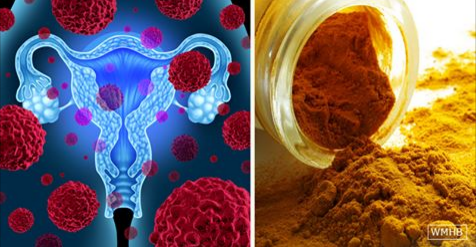Historically, spices are treasured for the unique flavors they bring to food and for their healing properties. Most spices provide some health benefits. However, one spice that shines for its medicinal benefits is turmeric. https://diyhealth.com goes over all the health benefits of turmeric.
You may have seen turmeric in the news as a potential treatment for various diseases such as arthritis, diabetes, heart disease, psoriasis, and Alzheimer’s, and even cancer.
But does this spice live up to its press?
And can you get the benefits of turmeric from food alone or should you take a turmeric supplement? Turmeric and curcumin are often used interchangeably. What’s the difference between them?
Here’s everything you need to know about the health benefits of turmeric.
Traditional health benefits of turmeric [1]
This amazing spice comes from the root of Curcuma longa, which is a flowering tropical plant native to India, and its healing properties have been used for thousands of years in Ayurveda (the natural Healing system of India, old 5,000 years). Moreover, scientists discovered cooking residue on pottery shards, which indicate that turmeric was used for cooking in Asia 4,500 years ago.
This versatile spice is extremely effective in the case of various health issues, including diabetes, heart disease, arthritis, psoriasis, Alzheimer’s, and cancer.
Turmeric and curcumin
At first, you need to know that turmeric and curcumin are different things, so you should not use them interchangeably.
So, let’s clear up any confusion.
Turmeric contains hundreds of compounds[1], each with its own unique properties. However, of all the compounds in turmeric, curcumin is by far the most promising and is the most widely studied.
Moreover, curcumin is not unique to turmeric, it is also found in ginger, another spice with a long history of medicinal use. You can find many pieces of information on the internet that make unrealistic claims about turmeric.
According to many health websites, there is evidence that shows that turmeric can have strong beneficial effects in the case of more than 600 ailments. But, the majority of research was conducted on curcumin, not turmeric.
Therefore, according to the comment of the National Center for Complementary and Integrative Health, “there is little reliable evidence to support the use of turmeric for any health condition because few clinical trials have been conducted.”
The reason for this is the fact that research is done more easily if conducted on an isolated compound, as it can be studied as a drug-like, rather than as a spice-like.
But the overriding reason may be that there is a little financial motivation to research a spice that’s already found in millions of kitchens worldwide unless it can be transformed into a substance that can be patented. You can order Truvani on Amazon and consume these tablets to experience the medical benefits of turmeric and curcumin.
Proven health benefits of turmeric
Proven health benefits of curcumin include relieving allergies, removing the brain plaques of Alzheimer’s, reducing the pain of arthritis, treating depression, managing diabetes, and reducing the risk of heart attack.
But what about turmeric — what is it good for?
So far, turmeric has been found to contain at least 20 compounds that are antibiotic, 14 known cancer preventatives, 12 that are anti-tumor, 12 anti-inflammatory, and at least 10 antioxidants.
Turmeric is considered a potent antioxidant, anti-inflammatory, antibacterial, antiviral, and anticancer agent. And studies point to a few specific conditions that turmeric can help.
1.Turmeric for cancer
This fantastic spice is a potential cancer-fighting agent. It acts synergistically to enhance the effects of chemotherapy and radiation, and it effectively destroys only affected tumor cells and does not harm the healthy ones.
- Turmeric tones down receptors on the cancer cells surface. Many cancer cells on their surface have Epidermal Growth Factor Receptors (EDGF for short). These receptors tend to cause a cell to divide faster, and blocking them leads to reduced cell division, which in turn leads to stopping the spread of cancer and his progression. Turmeric’s active compound curcumin is one of the things that block EDGF receptors that are very common in prostate cancer, breast cancer, colon cancer, etc.
- Turmeric blocks the production of a hormone called prostaglandin 2(PG-2). Cancer cells like to produce PG-2 because it helps them to divide faster. Faster cell division increases the progression of cancer and his spread through the body. Curcumin blocks down the formation of PG-2 and blocks the progression of cancer cells.
- Turmeric’s active ingredient curcumin also blocks another enzyme called Lipoxygenase (LOX). Cancer cells take lipoxygenase and it cause cancer cells to divide faster. Curcumin blocks the activity of this enzyme and with that stops the division of cancer cells.
- Turmeric stops the development of tumors by inhibiting the formation of new blood vessels ( a process known as angiogenesis) that tumor need for his progression and spread through the body.
- Turmeric inhibits a chemical called Nuclear Factor Kappa Beta (Nf-kB) and inhibits the growth of cancer cells. Because of this activity, curcumin is particularly beneficial in patients who have bone cancer.
However, consuming turmeric prepared in food provides more benefits than taking either curcumin or turmeric supplements.
2.Turmeric for Alzheimer’s
One of the most exciting benefits of turmeric is that it may prevent Alzheimer’s. Over 200 compounds have been identified in turmeric and curcumin is not the only one being studied for Alzheimer’s. Another compound in turmeric, turmerone, stimulates the production of new neurons and seems to encourage the brain to repair itself.
This property could make it a useful treatment for a variety of degenerative brain diseases besides Alzheimer’s, including Parkinson’s, traumatic brain injury, and stroke. According to a brain injury lawyer Las Vegas, injuries sustained from work can lead to brain injury and it is crucial to get proper legal representation.
3.Turmeric for arthritis
Inflammatory diseases like arthritis are very common. Statistics claims that over $650 million is annually spent in the U.S. on natural remedies for the treatment of chronic inflammation.
Turmeric is a potent anti-inflammatory, so it is really useful in the case of arthritis when both, applied internally and externally. In fact, studies have shown that turmeric can block around 97 different mechanisms that cause inflammation in the body.
According to the report of the Arthritis Foundation, turmeric leads to a long-term improvement in pain and function in the case of osteoarthritis. In a case of arthritis, you should take one capsule (400-600 mg curcumin) three times daily, or 1 to 3 grams of powdered turmeric root daily.
3.Turmeric for depression
Turmeric has impressive antidepressant properties. In fact, it’s been found to be more a more potent anti-depressant than Prozac (fluoxetine). It is believed to work by lowering the stress hormone cortisol while increasing serotonin, the neurotransmitter associated with happiness.
This is great news for the millions who have tried antidepressants without success or for those who experience unacceptable side effects.
Enhancing turmeric naturally
Unfortunately, turmeric’s main active ingredient curcumin is not very well absorbed. Unless the right steps are taken, it largely passes through the intestines unutilized.
Simply, you can mix it with black pepper, in order to stimulate its absorption. Namely, piperine, which is an ingredient in black pepper, increases its absorption by 2,000%.
Since curcumin is fat soluble, its bioavailability is enhanced when turmeric is cooked in oil. Again, tradition has this covered. Indian cuisine liberally uses peanut, sesame and coconut oil, and butter-derived ghee.
Turmeric tea
This tea is a wonderful way to incorporate this amazing spice into your regular diet. A rather interesting fact is that while boiling it in water for around 10 minutes, the curcumin’s solubility is increased up to 12 times.
Inhabitants of Okinawa, Japan, daily drink large amounts of this tea, and they are the people with the longest lifespan in the world, approximately 81.2 years.
In order to prepare this tea, you need to put 1 teaspoon of turmeric powder in a cup of water and simmer for 10 minutes. Then, strain and pour it into a cup. Its taste is a bit strange, as it is extremely bitter and medicinal tasting.
Therefore, we will suggest another variant that has a better taste and increases the bioavailability by both heating and adding coconut oil.
Liquid gold turmeric tea
Ingredients:
- 1 teaspoon turmeric powder
- 1 tablespoon coconut oil
- 1/2 cup coconut milk (you can replace almond milk or regular milk for coconut milk, as long as it includes some fat)
- 1/2 cup water
- Honey or stevia (to taste)
Instructions:
Add turmeric powder in the boiled water and gently simmer for 10 minutes. Then, add the coconut milk and oil, and heat the tea until warmed. Then, add stevia or honey.
Feel free to experiment with the ingredients and proportions to create the brew that is just right for you. You can substitute almond milk or regular milk for coconut milk, as long as it contains some fat.
Turmeric dosage
Most of us in Western countries are familiar only with the turmeric found in the dried spice section at the grocery store. But you can buy turmeric root in some produce sections — it looks a lot like ginger, a plant cousin that’s another source of curcumin.
According to the University of Maryland’s Complementary and Alternative Medicine Guide, here are suggested turmeric dosages for adults:
- Cut root: 1.5 to 3 grams per day
- Dried, powdered root: 1 to 3 grams per day
- Fluid extract (1:1): 30-90 drops per day
- Tincture (1:2): 15-30 drops, 4 times per day
- Their recommended curcumin dosage for a standardized powder supplement is 400 to 600 mg, 3 times per day.
- Look for products standardized for 95% curcuminoids that also contain piperine or black pepper extract.
Turmeric supplement side effects
When consumed in food, turmeric is completely safe, as it causes no side effects, apart from the increased risk of kidney stones in people who are prone to their occurrence.
On the other hand, turmeric supplements carry a large number of possible side effects, interactions, and warnings:
- Pregnancy – Curcumin triggers the uterus and increases the risk of a miscarriage. It is still not confirmed whether it is safe to be used while breastfeeding.
- If you are trying to conceive – If you are having trouble conceiving, turmeric could add to your difficulties.
- If you have gallstones or gallbladder disease – Turmeric can make gallbladder problems worse.
- If you are scheduled for surgery in the next two weeks. Turmeric increases the risk of bleeding.
- If you take medications that decelerate clotting, like diclofenac, ibuprofen, aspirin, clopidogrel, heparin, warfarin, and naproxen. Turmeric raises the risk of bleeding and bruising.
- If you have GERD, ulcers, or other stomach problems. Turmeric can make GERD worse and cause gastric irritation, stomach upset, nausea, and diarrhea.
- If you take drugs to reduce stomach acid, as turmeric may interfere with the actions of medications as Tagamet, Zantac, and Nexium, by increasing the stomach acid production.
- If you take diabetes medication. Turmeric increases the risk of hypoglycemia (low blood sugar).
- If you have an iron deficiency. Turmeric can prevent the absorption of iron.
(c) http://www.healthiestalternative.com/




Comments